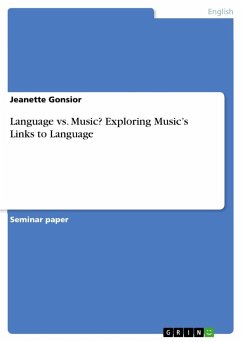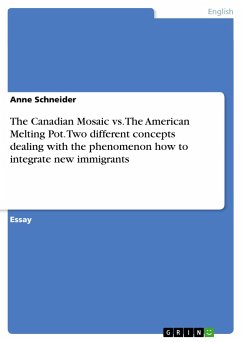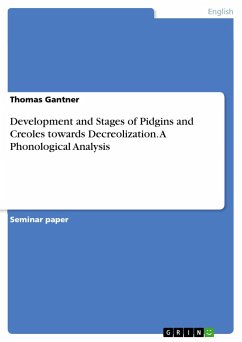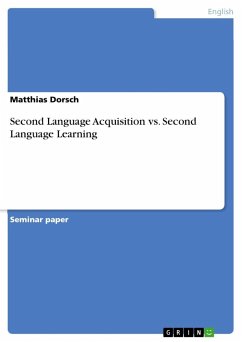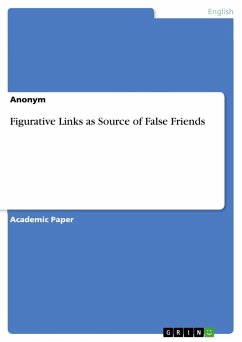Seminar paper from the year 2011 in the subject American Studies - Linguistics, grade: 2,0, Humboldt-University of Berlin (Institut für Anglistik und Amerikanistik), course: Language vs. Culture? A Comparison between Language and Music, language: English, abstract: Language and music--both can be found in every human society--are the most basic socio-cognitive domains of the human species. At first glance, they share fundamental similarities, such as being based on acoustic modalities and involving complex sound sequences. Language, as well as music, functions as a means of communication and a form of expression. Both systems are organized into hierarchically structured sequences, and a written system was developed for language and for music. The interest in music-language relations has a long history, of course, and does not originate with modern cognitive science: "The topic has long drawn interest from a wide range of thinkers, including philosophers, biologists, poets, composers, linguists, and musicologists. Over 2,000 years ago, Plato claimed that the power of certain musical modes to uplift the spirit stemmed from their resemblance to the sounds of noble speech (Neubauer, 1986). Much later, Darwin (1871) considered how a form of communication intermediate between modern language and music may have been the origin of our species' communicative abilities. Many other historical figures have contemplated music-language relations, including Vincenzo Galilei (father of Galileo), Jean-Jacques Rousseau, and Ludwig Wittgenstein. This long line of speculative thinking has continued down to the modern era (e.g., Bernstein, 1976). In the era of cognitive science, however, research into this topic is undergoing a dramatic shift, using new concepts and tools to advance from suggestions and analogies to empirical research." (Cp. PATEL (2008): Music, Language, and the Brain)The production of music and language is a prime example of the human brain's capacities. But does the brain process music as it processes language? Are language and music processed in the same hemisphere(s)? Are linguistic and musical irregularities processed by the same brain area(s)? What are the cognitive differences and similarities? And how can brain activity be measured? These and other very complex questions are to be approached in this seminar paper. The central interest is to explore and compare some of the structural and cognitive properties of language and music (and the links between them) in order to find out whether music is language-like in certain regards. The central questions are: Does music have something like a grammar or syntax? Is music able to transfer meaningful information? Chapter 2.1 examines the structural units (...)
Hinweis: Dieser Artikel kann nur an eine deutsche Lieferadresse ausgeliefert werden.
Hinweis: Dieser Artikel kann nur an eine deutsche Lieferadresse ausgeliefert werden.

